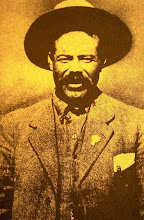Published November 21, 2006
With President Vicente Fox leaving office, Mexico will be witnessing a curious transition of power. Monday the backers of defeated Mexican presidential candidate Andres Manuel Lopez Obrador named him the country's "legitimate president," and on Dec. 1 President-elect Felipe Calderon will assume the official office. Though most pundits condemned Lopez-Obrador for taking such an extreme step, financial markets have barely noticed. The Mexican peso has gained ground since the July election and the stock market recently reached a record high.
The market is right and the ideologues are wrong. Lopez-Obrador's decision is an attempt to overcome a fundamental problem of constitutional design. In contrast to parliamentary systems, presidentialist constitutions do not provide institutional space for the leader of the opposition.
In England, for example, the leader of the opposition immediately takes his place on the front bench of the House, with his "shadow Cabinet" regularly challenging the government's policies. Under presidentialism, the losing candidate is simply sent home.
This is a major weakness of the system even when the electoral verdict is clear and the electoral authorities are trustworthy. Although the losing candidate may be a good sport, and concede to the victor, the people lose when the candidate fails to function as the leader of the opposition. The problem is far more severe when a cloud of doubt weighs over the electoral result.
This is what has happened in Mexico. Though the election was decided by fewer than 234,000 votes out of nearly 42 million cast, the electoral authorities have failed to take the most obvious steps to assure the public of the integrity of the process.
In contrast to Bush vs. Gore in 2000, Mexico's Federal Elections Institute has rejected media requests to gain access to the ballots to conduct an independent recount. Worse yet, even though the Federal Electoral Tribunal conceded the existence of widespread irregularities, it refused to disclose the details of its partial recount. Unsurprisingly, polls reveal that 30 percent of Mexicans, more than 35 million people, believe that Calderon did not win the election cleanly.
Most of these 35 million constituents inhabit the underside of the Mexican economy. Today, more than 40 million Mexicans live on less than $4 a day, while more than 40 percent of Mexico's wealth is concentrated in the top 1 percent of the population. Mexico's per capita real gross domestic product has grown by only 0.7 percent annually since the early 1980s. Migration to the U.S. has historically been a crucial escape valve. The Bush administration's decision to crack down on immigration and construct a wall along America's southern border with Mexico will only make problems worse.
Frustration abounds. Without a leader to help channel and organize this discontent, Mexico may indeed head toward a downward spiral of chaos and crisis. The present situation in the state of Oaxaca may unfortunately set the example for the future of the country as a whole. More than 1 million elementary students there were left without school for more than five months, 14 people have been killed, and a series of homemade bombs was recently detonated by opposition groups.
Within this context, Lopez-Obrador's alternate government may be precisely the stabilizing force that Mexico needs to revitalize its faltering democracy. Lopez-Obrador has gone out of his way to insist that his left-wing movement is non-violent and his backers have followed his example religiously. It would be a grave mistake for the new government to ignore, persecute or repress this movement. To the contrary, the challenge is to encourage Lopez-Obrador to operate as a responsible opposition leader and take concrete steps to collaborate on strategies to democratize the management of power and eradicate poverty and inequality.
There is a great deal of evidence supporting the theory that presidentialism is one of the principal causes of Latin America's notorious difficulties in stabilizing its democratic life. But there is no hope of changing the system in the short run. The challenge instead is to compensate for its grave deficiencies through creative statesmanship on both sides. Otherwise, the market's bullish preliminary assessment may prove misleading in the middle term.
----------
John Ackerman and Irma Sandoval are professors at the Institute for Legal Research and the Institute for Social Research, respectively, at the National Autonomous University of Mexico. Ackerman's book on democracy and accountability in Mexico will be published in February. Sandoval is the director of the Laboratory of Documentation and Analysis of Corruption and Transparency at UNAM.

No hay comentarios.:
Publicar un comentario